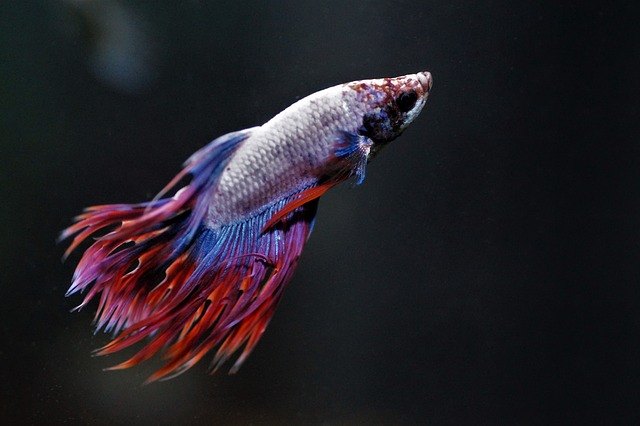Whether or not fish sleep, and the manner in which they do so, is a topic which continues to interest scientists. This is because sleep science, the study of how, why, and when animals sleep, is still largely unexplored, even for humans.
Their research, however, has proven that fish do sleep in a sense. It’s just not in the manner which you would probably equate to human sleep.
They don’t require a bed, blanket, or night light, and being surrounded by water obviously isn’t an issue for them. They’re also able to perform functions that human beings don’t when they’re sleeping.
So, do fish sleep? The short answer is yes! All fish require a certain amount of sleep.
Keep reading for more information about how fish sleep, which fish sleep differently than others, and how to know if your fish is sleeping properly.
Contents
How Do Fish Sleep?
Fish don’t have eyelids, for starters, which means that they sleep with their eyes open.
If you’ve ever observed fish in a tank, then you may have also noticed that they go through periods of inactivity where they appear to hover in place, and are less responsive to stimuli.
Seeker cites The National Sleep Foundation to describe fish sleep as a daydreaming state, during which their metabolic rate decreases. This allows their bodies to restore itself.
Unlike humans, fish also don’t experience REM sleep, and they don’t have to remain solitary to sleep either.
All fish don’t hover in place while sleep. For example, fish that live in coral reefs hide in their crevices at night for protection against predators.
According to Wonderopolis, the parrot fish secretes a jelly-like substance that surrounds it when it sleeps to protect from nearby danger.
Sharks don’t appear to sleep at all, even though they do! While resting, Jaws and his pals never actually stop swimming; they just decrease their speed.
The one thing that all fish have in common is that they must keep moving – in some form – even when they’re sleeping.
Fish still need oxygen to live, just like land-dwelling animals, and that process requires constant movement.
Do Fish Sleep and Breath at the Same Time?
Since fish don’t have lungs, they breathe by filtering water through their gills.
Fish take in water through their mouth. It then travels through their gills, which extracts the oxygen from the water.
The fish’s heart then pumps the oxygen into the fish’s body. Meanwhile, carbon dioxide and other waste are pumped back out through the gills.
This is a never-ending process, which can only take place when fish are in motion. Because of this, fish will appear to be active even while they’re sleeping.
There are a couple of exceptions to this rule, however. Dolphins, one of the few fish which don’t have gills, have to come up to the ocean’s surface to get air.
When they’re awake, they can just swim to the surface, then return to the water. When they’re asleep, however, it’s a different story.
This is why dolphins employ a sleep habit called “lodging”. This means that they hover near the surface when they sleep so that they can take in oxygen and prevent themselves from suffocating.
Indus dolphins are even more unique. They swim constantly and can sleep for up to seven hours at a time. That’s a lot more talented than humans!
When Do Fish Sleep?
Unlike humans, whose sleep habits are influenced by our circadian rhythms, fish can sleep at any time of the day. They’re adaptable that way!
Things like water temperature and nearby threats both influence when a fish decides to sleep. The length of time that a fish rests depends largely on the species and their environment.
How to Know If Your Fish is Sleeping Properly
If you have one of these watery pets, you might be wondering how to tell if your fish is sleeping properly.
Betta fish, for example, need sleep like all fish. Unlike some other species of fish, though, bettas rest almost exclusively at night – just like humans do.
If you’ve never caught your betta fish snoozing, it’s likely that you were sleeping too! That said, bettas sometimes nap during the day.
They prefer to sleep when they feel secure, so it’s very likely that you might find them sleeping behind their tank filter or resting on a surface of a plastic bush, treasure chest, or another item.
Here’s a video explaining more details on how fish sleep.
So, the next time you see a fish hovering in place, don’t disturb them by tapping the glass. It’s likely that they’re undergoing a crucial process to restore and rejuvenate themselves, and would prefer not to be woken.
Fish might be less reactive to stimuli while asleep, but it is possible to annoy them. They need their rest, just like we do!
What are your thoughts on fish sleep?




